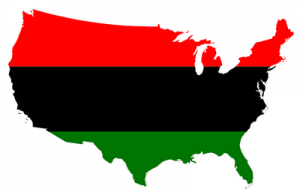(ThyBlackMan.com) Students of classical history are familiar with the old axiom of Nero fiddling while Rome burned, and for those who are not, it simply means that leadership preoccupied with the frivolous often preside over a declining state of affairs. Today this term has a likewise axiomatic meaning, as some in Black leadership posture for an illusionary sense of power and indulge in self-congratulatory praise.
In the meantime, Black youth, particularly our boys, are in danger of self-nullification by:
1) failing to take education seriously because of a lack of guidance,
2) filling jails and prisons because of anti-social behaviors fed by self-hatred and
3) jeopardizing their future with unhealthy practices leading to fatal diseases such as HIV and AIDS.
With this said it should be of no surprise that policy-makers – recognizing the coming 2050 demographic shift where people of color will become the majority population in the United States – have been both shrewd and  pragmatic in their approach in dealing with the so-called unmentionable “Black problem.” Manifesting this reality in everything from long-term urban planning and “gentrification” to eminent domain and selective code enforcements, it has become clear that “urban renewal” is a euphemism for “Negro removal.”
pragmatic in their approach in dealing with the so-called unmentionable “Black problem.” Manifesting this reality in everything from long-term urban planning and “gentrification” to eminent domain and selective code enforcements, it has become clear that “urban renewal” is a euphemism for “Negro removal.”
When inner-city properties are reclaimed by the more affluent, causing property values to increase, African-American leaders may find their traditional constituents increasingly relocating to more affordable areas. As a result, Black influence dwindles in proportion to their declining numbers in urban areas.
While on the surface some may claim diversity as the motivating factor behind the trends leading to such demographic shifts, across the country Black leadership should nevertheless remain mindful that the buzzword “post-racial politics” may in fact be a code phrase for the political neutering of African-American communities.
The late Democratic Representative Tip O’Neill once said: “All politics is local.” If this is the case, when African-Americans find themselves politically out maneuvered, Black people and Black issues become of little or no importance in the formulation of national public policy. Therefore, as the 1960s and 1970s trends of Black people moving in as white people moved out reverses itself, Blacks are losing politically important locations in the cities, and with it their ability to influence local policy.
The gains made by African-Americans during the civil rights movement and the legislation that passed as a result, created greater mobility allowing Blacks greater access to inner-city factories and residences. However, with the “white flight” that followed and the moving out of jobs to the suburbs and other outlying areas, to quote the Honorable Minister Louis Farrakhan: “politics without economics” started becoming “symbol without substance.”
Today, as downtown and inner-city properties are bought up and redeveloped for a more “upscale clientele,” effected African-Americans will either scatter to various other locations, thereby diluting their political influence, or they may once again concentrate in other less desirable locations starting the process over again.
Since most American cities have urban planning agendas, often stretched out into five, 10 and 15 (or more) year plans, once change has begun, it is difficult to alter course. Also, those who may feel the Black community has been manipulated or out maneuvered through an urban planning agenda may find that it is too late to do anything about it. However, all is not necessarily lost.
Various cultures, groups and families demonstrate examples of their values, customs and norms. As such, whether Black neighborhoods are clean and decent places to live or depressed examples of crime, unemployment and blight a community by nature manifests the physical, social and mental condition of its people.
For instance, when mentioning Chinatown, Greek town or one the various other ethnic districts found throughout the United States, one immediately envisions their unique characteristics. From food and architecture to clothing and entertainment, such communities reflect proud heritages, tangible contributions to society and a general knowledge and love for self.
For the descendants of enslaved Africans, however, it is quite difficult to identify a specific culture beyond the plantations of the old South. With our links to the mother continent cut off, our history and achievements as a civilized people (and yes, I said civilized) were lost while a negative image of Black humanity was taught throughout the Western world.
Through social indoctrination, a Eurocentric educational system and an entertainment industry that for years portrayed Blacks as uncivilized savages, buffoons or menaces to society, Black leadership today has too big a job cut out for itself than to waste its time on deceitful games, false pride, jealous bickering or envious subterfuge.
Is there time to waste as the clock ticks down to the year 2050? How will a Black child born today feel 42 years from now? Will he thank our current generation for its righteous deeds and sacrifices or will he condemn us for our empty rhetoric and posturing while we chased symbols over substance? The choice is now up to us, and the time for proactive solutions is long overdue.
Written By William P. Muhammad
Official Website; http://www.wisdomhouseonline.com

















Leave a Reply